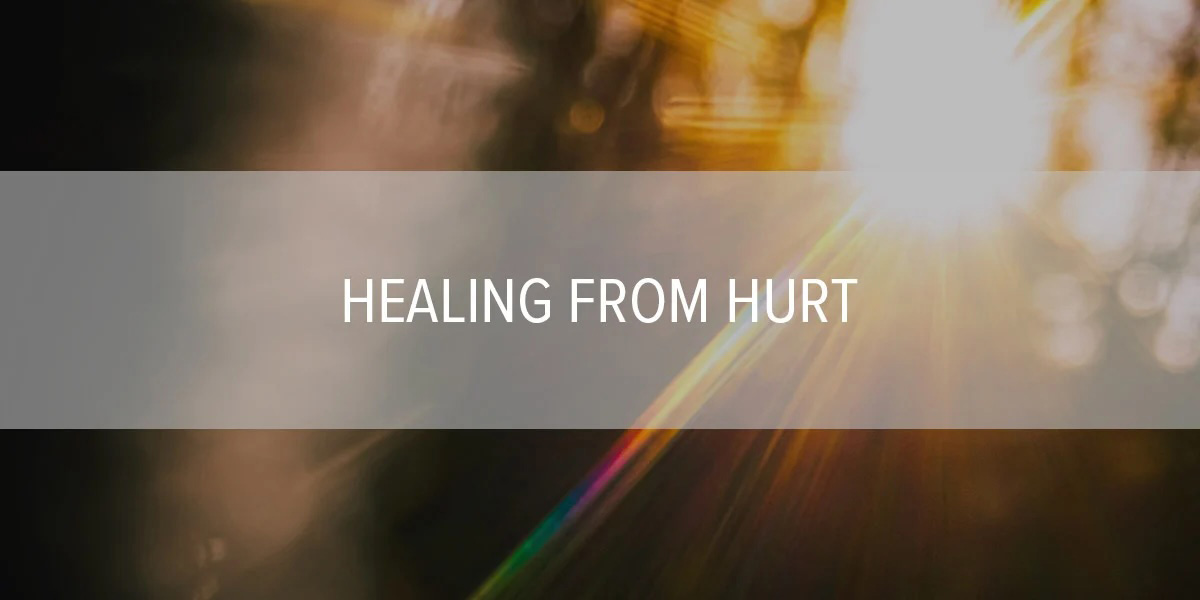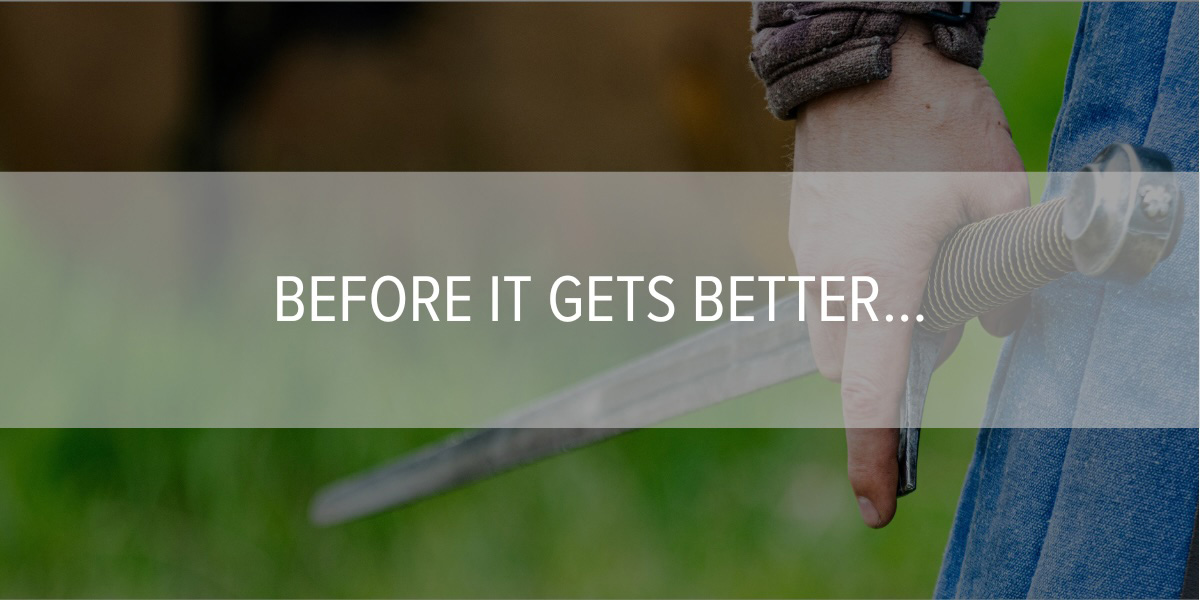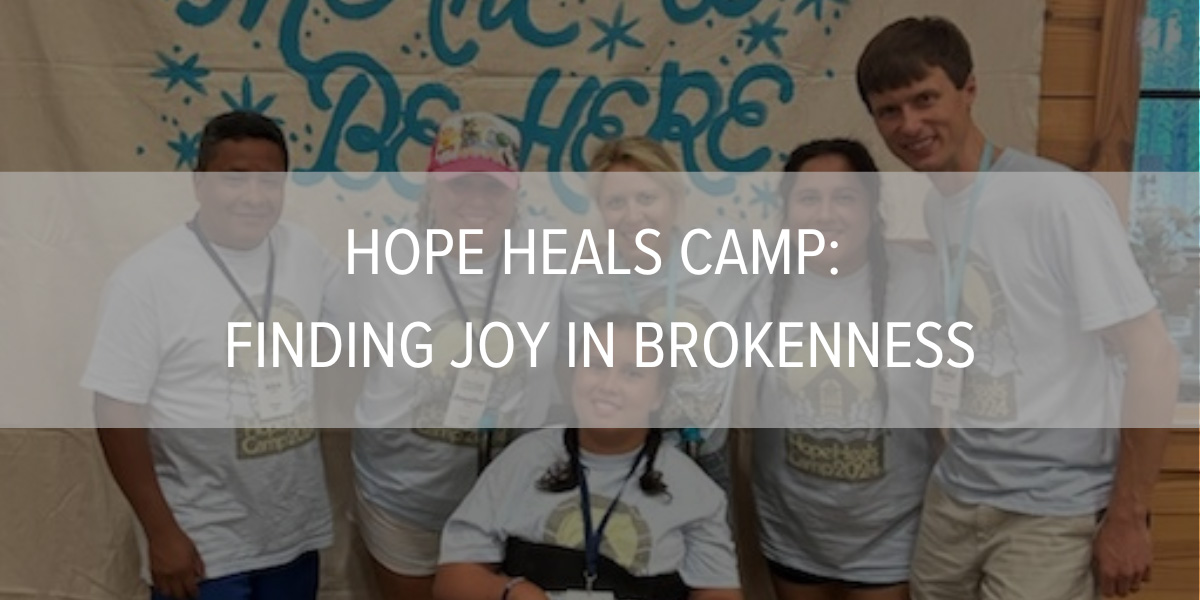God uses our pain for His glory and our good.
Subconsciously, I thought that since I wasn’t responsible for the hurt that had happened to me that meant I wasn’t responsible for the healing. I had no say in the trauma that had occurred; you could say I was an innocent bystander. So in my mind, healing would happen the same way; through me doing nothing about it. I thought if I just prayed hard enough, ignored it, and swept it away into a dark corner of my mind that God would take care of it. I placed a sign on the door that said, “Nothing to see here,” and sat, staring, waiting for God to show up and do something. Anything.
I was reading in Zechariah in my quiet time and stumbled across something that really impacted me. Some men go to the priests in chapter 7 and ask, “Should I mourn and fast in the fifth month, as I have done for so many years? (v3)” They had gotten into the rut and routine of mourning and waiting, thinking they were honoring God. God responds to them by asking, “When you fasted and mourned in the fifth and seventh months for the past seventy years, was it really for me that you fasted? (v5)” That line hit me like a ton of bricks; was it really for God? God calls them out, telling them they were weeping and mourning (or as I was, waiting on God to show up) when He had already started working to bring joy and peace. In the next chapter, God even tells them that He was “planting seeds of peace and prosperity among you. (v12)” Then He tells them, “The traditional fasts and times of mourning you have kept in early summer, midsummer, autumn, and winter are now ended. They will become festivals of joy and celebration. (v19)” He literally flips the script; He commanded them to turn their sadness and grief into festivals of joy. And this is what He does in us. Because of Christ, we have reason to celebrate. Because we have Jesus we always have hope, and he turns our times of mourning and fasting into celebration and joy. I’m not saying we ignore our hurt and put on a fake smile and act like we’re happy and good when we aren’t. But I *am* saying that God is always faithful to work in our pain, that it won’t last forever, and that we always have hope and something to celebrate in Him. Because of this, we move forward, putting one step in front of the other and trusting that God is working for our good.
I was sitting and waiting for God to heal me—waiting to feel something—when in reality, God had given me the tools to do the holy work of healing. I wanted a snap of the fingers and to be all better. I wanted to erase everything that had happened. So I sat, and as the people did in Zechariah, and mourned and fasted and waited for God to make things back to the way things were. But God wanted so much more. He wanted to mold me, use me, and grow me beyond my wildest dreams through this process. Just as sanctification is a process that requires hard work but is good and worth it—so is healing. Can he heal at the snap of the fingers? Absolutely.
But—if we truly believe that God works all things for good—we can’t just will the pain to go away. God will do more in and through you during the process of pain and healing. We can’t ignore the pain and want to go back to the way things were and forget about it. We have to trust that God does not waste any of our pain.
We want God to do beautiful things. Holy things. Redemptive things.
We learn to trust Him—we grow and stretch.
There’s a kind of cheesy cliche that pressure turns coal into diamonds. I’m not sure how scientifically accurate that is, but I think the sentiment applies. I want this pressure and this fire to turn me from ashes to a diamond. I don’t want to give up when I’m just a heap on the floor.
After my Dad died, one of the pastors here challenged my perspective on this famous verse.
Psalm 23:4 states:
“Even when I walk
through the darkest valley
I will not be afraid,
for you are close beside me.
Your rod and your staff
protect and comfort me.”
This verse is so encouraging because it reminds us that God never leaves us or forsakes us while we are going through hard times. But he reminded me that in order to get out of the valley, we do have to walk through the valley. We don’t sit down, lie in the mud, and let ourselves get eaten by a bear. God gives us the strength to walk through the valley.
More often than not, the miracle God does is not spontaneous healing but God working in the hard stuff. God takes our pain, struggles, and grief and uses them to mold us. He turns them into celebration, not with the snap of a finger but with faith forged in fire.
So I want to ask you; where do you need to put in work where you are actually sitting and waiting? What can you do to take a next step? You are never taking a step alone, but sometimes you do have to take a step. Is it going to see a professional counselor? Journaling? Increasing (or starting) your quiet time with the Lord? Joining a small group or Re:Gen group at the church?
Just imagine the incredible things God can do in and through your pain.







0 Comments